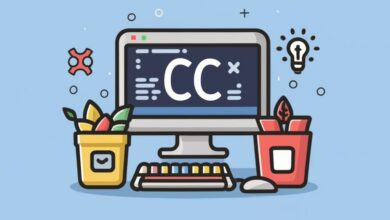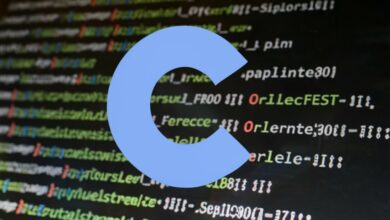
If-Else Statements in C Exercises and Solutions
Conquering Choices: Mastering If-Else Statements in C with Exercises and Solutions
C’s if-else statements are your gatekeepers to conditional logic, guiding your program down different paths based on specific conditions. This guide unravels the intricacies of if-else with a selection of exercises and solutions, empowering you to navigate the decision-making world of C programming.
1. The Basics of Branching Out
Exercise 1: Age Verification
Write a program that asks for a user’s age and prints a message based on their age group (child, teenager, adult).
Solution:
C
#include <stdio.h>
int main() {
int age;
printf("Enter your age: ");
scanf("%d", &age);
if (age < 13) {
printf("You are a child!\n");
} else if (age < 20) {
printf("You are a teenager.\n");
} else {
printf("You are an adult!\n");
}
return 0;
}
Explanation:
- We use
scanfto read the user’s age into theagevariable. - An
ifstatement checks if the age is less than 13, printing “child” if true. - An
else ifstatement checks for ages between 13 and 19, printing “teenager” if true. - Finally, an
elseblock handles all remaining ages, printing “adult”.
2. Nesting for Granular Control
Exercise 2: Grading System
Write a program that takes a score as input and assigns a letter grade based on predefined ranges.
Solution:
C
#include <stdio.h>
int main() {
float score;
printf("Enter your score: ");
scanf("%f", &score);
if (score >= 90) {
printf("Grade: A\n");
} else if (score >= 80) {
printf("Grade: B\n");
} else if (score >= 70) {
printf("Grade: C\n");
} else if (score >= 60) {
printf("Grade: D\n");
} else {
printf("Grade: F\n");
}
return 0;
}
Explanation:
- This program uses
scanfto read the score as a float. - A series of nested
ifstatements check the score against different cut-off points, assigning letter grades based on the range it falls within. - Each
ifblock prints the corresponding grade if the condition is true.
3. Advanced Techniques for Complex Choices
Exercise 3: Discount Calculator
Write a program that applies different discounts based on the total purchase amount and customer type (regular, premium).
Solution:
C
#include <stdio.h>
int main() {
float amount;
char type;
printf("Enter total purchase amount: ");
scanf("%f", &amount);
printf("Enter customer type (R/P): ");
scanf("%c", &type);
if (type == 'R') {
if (amount >= 500) {
printf("Discount: 10%%\n");
} else if (amount >= 250) {
printf("Discount: 5%%\n");
} else {
printf("No discount available.\n");
}
} else if (type == 'P') {
if (amount >= 1000) {
printf("Discount: 15%%\n");
} else if (amount >= 500) {
printf("Discount: 10%%\n");
} else {
printf("Discount: 5%%\n");
}
} else {
printf("Invalid customer type.\n");
}
return 0;
}
Explanation:
- This program reads the purchase amount and customer type from the user.
- An
ifstatement checks the customer type. - Inside each customer type block, nested
ifstatements check the purchase amount against different levels and print the corresponding discount percentage. - An
elseblock in each customer type section handles invalid amounts. - An outer
elseblock handles invalid customer types.
Remember, if-else statements are flexible and can be combined in various ways to handle sophisticated decision-making logic. This is just a glimpse into their power. Explore further exercises like:
- Logical operators: Combine conditions using
&&(and),||(or), and!(not) for more complex branching. - Switch-case statements: Utilize
switch-casefor situations with multiple, distinct choices, offering an alternative to nestedif-elsestatements in certain cases. - Error handling: Use
if-elseto validate user input, detect errors, and handle them gracefully.
By mastering if-else statements and practicing with diverse exercises, you’ll not only conquer conditional logic but also unlock the full potential of your C programs.




